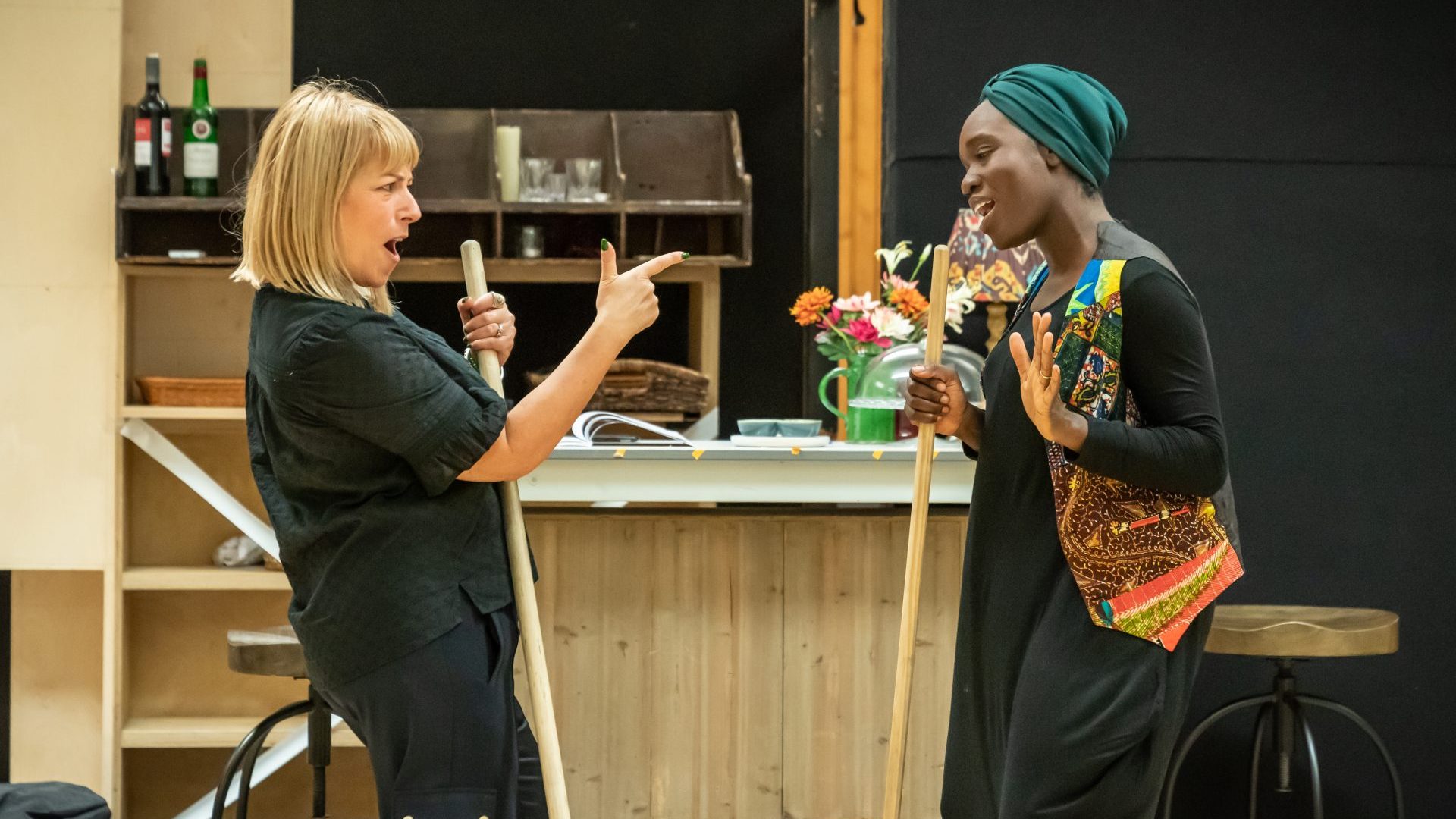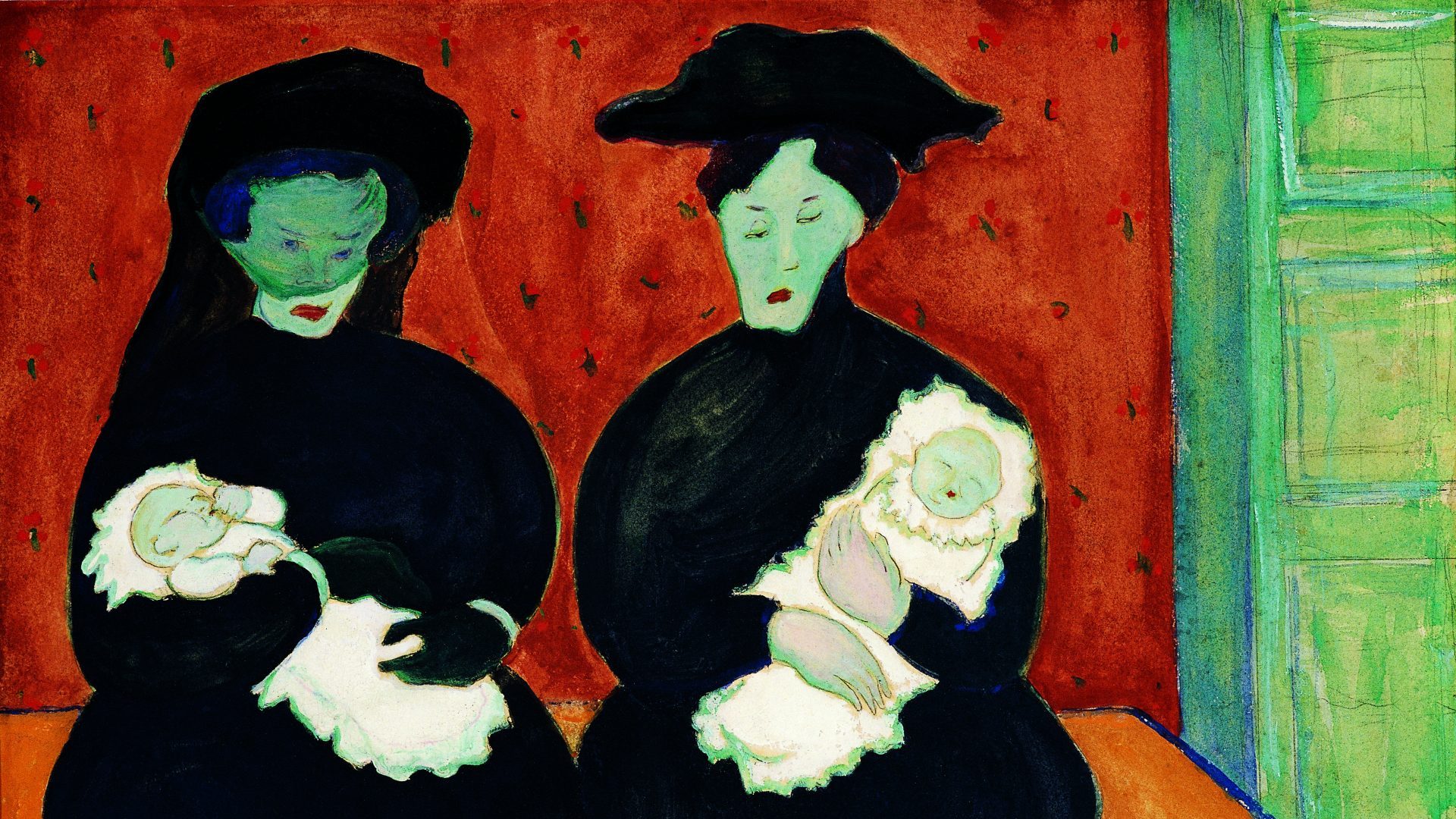Kerry Jackson
National Theatre, London, until January 28
Theatre still overwhelmingly focuses on white, middle-class, middle-aged angst of one kind or another. The reason for this is simple: it’s principally angsty, white, middle-class, middle-aged people who go to theatres and can still afford to buy tickets.
When a show is about people of different ethnicities who lead very different kinds of lives – and there have been a few very good and thoughtful ones lately that have focused, for instance, on asylum seekers – there always seems to be an expectation that they should also be middle-class, speak clearly and be relatable to the mainstream theatre-going demographic.
All the while, theatre-makers are ironically conscious of the fact that they need to attract new and more youthful demographics, from all classes, ethnicities and backgrounds, but can’t seem to break out of this self-perpetuating rut.
Still, when plays miraculously get on that talk to different kinds of people,
different kinds of people do turn out to see them. I was struck by the strong
Asian contingent who turned out at the National for The Father and the Assassin – focusing on Gandhi’s murderer – and the strong African-Caribbean one for Blues for an Alabama Sky. The usual middle-class demographic turned out for these two plays, too, welcoming the change of pace.
This was going through my mind as I sat through Kerry Jackson, which was clearly supposed to show that the National knows all about the working classes, but actually it looked more like our supposedly pre-eminent theatre
having a very public full-scale nervous breakdown about the whole issue of class. The Cold Feet star Fay Ripley, playing the title role in April De Angelis’s
new play, describes herself early on as a “gobby woman”, and later a posh character calls her “a pleb”, which is the writer’s less-than-subtle way of putting two big neon signs over her head saying: “Warning – working-class character”.
There have of course been important ground-breaking plays about working-class characters – Look Back in Anger and A Taste of Honey come to mind – but
De Angelis seems to have learned nothing from them, if indeed she has seen them. The backstory of her central character clearly ticks every middle-class notion of what a working-class person ought to be like. She is born in Essex, is casually racist, foul-mouthed, with no fashion sense, and, as a child of the Thatcher years, wants to make her tapas bar a big commercial success at all costs, and, oh yes, she is a Brexiteer.
Think about the old Coronation Street character Bet Lynch – but without the poise and sophistication – and that’s our Kerry. If it’s still not obvious to some
soporific members of the audience that she really is working class, De Angelis introduces an equally stereotypical middle-class character called Stephen (Michael Gould) so that the contrast between the two might be savoured. He’s a philosophy lecturer, but the writer needs an excuse to get them talking – clearly she reckons they wouldn’t have anything to talk about
otherwise – so she makes him also a part-time restaurant reviewer, who Kerry wants to write favourably about her tapas bar. He’s the fellow who swiftly comes to the view she’s a “pleb”.
That antagonism notwithstanding, and the fact there is no obvious chemistry between them – either in the script or the way that they are played – they unexpectedly end up in bed, and, for a while, it all starts to feel a bit like Educating Rita as Stephen attempts to smooth down Kerry’s rough edges. Alas, the relationship ends as quickly as it began and we are back in the realms of Carry On Class Warfare again.
There’s also a homeless man named Will (Michael Fox), a warm-hearted intellectual, and a black chef called Athena (Madeline Appiah) who works in
the tapas bar, but they are not so much characters as plot devices to be bullied by Kerry, accentuating her nastiness.
It is all supposed to be witty and knowing, but of course it is merely patronising, if not actually offensive. What is the play saying? Working-class people aren’t very nice? And why does the only black man in the play have to be homeless? I get the impression De Angelis really wanted to write a play that challenged stereotypes, but inadvertently ended up writing a play that ridiculously reinforces them.
In the commercial theatre, a play like this would have been properly workshopped – when it’s put through a few stagings and everyone involved talks through what works and what doesn’t – and quite probably something like this would either have been scrapped altogether or another writer found who could somehow make the idea work.
The director, Indhu Rubasingham – her day job is presiding over the Kiln in north London – is one of the best in the business, but she should have asserted herself with this production or bailed out. No director, no matter how good, could ever have made a script as clunky and hackneyed as this seem anything other than clunky and hackneyed.




